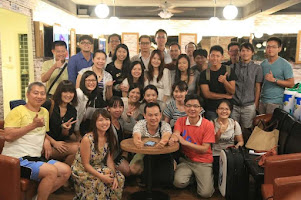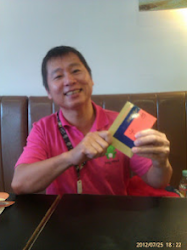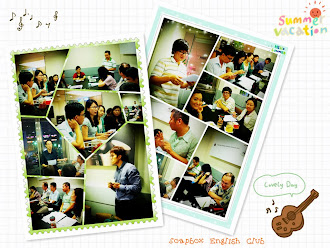聚會時間 晚上7:30-9:30
斷食有益健康
10 Benefits of Fasting That Will Surprise You
Nathan Hewitt
Is it a good thing to ‘starve’ yourself each day, or a few days of the week? Well, a tonne of evidence indicates that timed periods of fasting are a good thing.[1]
Starvation literally means starvation. It doesn’t mean skipping a meal or not eating for 24 hours. Or not eating for three days even. The belief that meal skipping or short-term fasting causes “starvation mode” is so completely ridiculous and absurd that it makes me want to jump out the window. – Martin Berkhan
Fasting has become increasingly popular over the years, especially among the health community. Whilst most health practitioners are afraid to recommend eating less due to the stigma involved, it still doesn’t alleviate the incredible benefits of fasting when used sensibly.
In this article, we’ll explore 10 benefits of fasting that will surprise you, and how you can incorporate them into your own life.
1. Fasting Helps Weight Loss
Photo credit: Source
Fasting can be a safe way to lose weight as many studies have shown that intermittent fasting – fasting that is controlled within a set number of hours – allows the body to burn through fat cells more effectively than just regular dieting.
Intermittent fasting allows the body to use fat as it’s primary source of energy instead of sugar. Many athletes now use fasting as means to hitting low body fat percentages for competitions.[2]
2. Fasting Improves Insulin Sensitivity
Fasting has shown to have a positive effect on insulin sensitivity,[3] allowing you to tolerate carbohydrates (sugar) better than if you didn’t fast. A study showed that after periods of fasting, insulin becomes more effective in telling cells to take up glucose from blood.[4]
3. Fasting Speeds Up The Metabolism
Intermittent fasting gives your digestive system a rest, and this can energise your metabolism to burn through calories more efficiently. If your digestion is poor, this can effect your ability to metabolise food and burn fat. Intermittent fasts can regulate your digestion and promote healthy bowel function, thus improving your metabolic function.
4. Fasting Promotes Longevity
Believe it or not, the less you eat the longer you will live. Studies have shown how the lifespan of people in certain cultures increased due to their diets[5]
However, we don’t need to live amongst a foreign community to reap the benefits of fasting. One of the primary effects of ageing is a slower metabolism, the younger your body is, the faster and more efficient your metabolism. The less you eat, the less toll it takes on your digestive system.
5. Fasting Improves Hunger
Just think about this, can you actually experience real hunger if you eat a meal every 3-4 hours? Of course you can’t. In fact, to experience the true nature of hunger, this would take anything from 12 to even 24 hours.
Fasting helps to regulate the hormones in your body so that you experience what true hunger is. We know that obese individuals do not receive the correct signals to let them know they are full due excessive eating patterns.[6]
Think of fasting as a reset button: the longer you fast, the more your body can regulate itself to release the correct hormones, so that you can experience what real hunger is. Not to mention, when your hormones are working correctly, you get full quicker.[7]
6. Fasting Improves Your Eating Patterns
Fasting can be a helpful practice for those who suffer with binge eating disorders, and for those who find it difficult to establish a correct eating pattern due to work and other priorities.
With intermittent fasting going all afternoon without a meal is okay and it can allow you to eat at a set time that fits your lifestyle. Also, for anyone who wants to prevent binge eating, you can establish a set time in where you allow yourself to eat your daily amount of calories in one sitting, and then not eat till the following day.
7. Fasting Improves Your Brain Function
Fasting has shown to improve brain function because it boosts the production of a protein called brain-derived neurotrophic factor (BDNF.)[8]
BDNF activates brain stem cells to convert into new neurons, and triggers numerous other chemicals that promote neural health. This protein also protects your brain cells from changes associated with Alzheimer’s and Parkinson’s disease.
8. Fasting Improves Your Immune System
Intermittent fasting improves the immune system because it reduces free radical damage, regulates inflammatory conditions in the body and starves off cancer cell formation.[9]
In nature, when animals get sick they stop eating and instead focus on resting. This is a primal instinct to reduce stress on their internal system so their body can fight off infection. We humans are the only species who look for food when we are ill, even when we do not need it.
9. Fasting Contributes To Self-Enlightenment
Fasting has helped many people feel more connected to life during the practices reading, meditation, yoga and martial arts etc. With no food in the digestive system, this makes room for more energy in the body – the digestive is one of the most energy absorbing systems in the body.
Fasting for self-enlightenment allows us to feel better both consciously and physically. With a lighter body and a clearer mind we become more aware and grateful for the things around us.
10. Fasting Helps Clear The Skin And Prevent Acne
Fasting can help clear the skin because with the body temporarily freed from digestion, it’s able to focus its regenerative energies on other systems.[10]
Not eating anything for just one day has shown to help the body clean up the toxins and regulate the functioning of other organs of the body like liver, kidneys and other parts.
一拍即合
How to Get Along With Everyone
Co-authored by Paul Chernyak, LPC Last Updated
In our day-to-day lives, we must interact with a wide variety of people. Some of them are easy to get along with, but others can be more challenging. It's impossible to like everyone, but sometimes we have to get along with people whether we like them or not. With the right attitude and good social skills, you really can get along with just about everyone (at least in small doses). Be positive and polite and you never know who might end up being a future friend.
Developing a Good Attitude
Cultivate a positive outlook. People with a genuinely positive attitude are seen as more attractive and charming by others. The more you can cultivate this outlook in your own life, the more most people will like you.
Don't worry if this doesn't come naturally to you — it is something you can learn through practice. Be conscious about smiling more. Accept compliments with gratitude and humility.
When you find yourself thinking negative thoughts about situations or people, stop and try to think of a bright side or positive characteristic that can help you feel better about it.
Respect differences between people. Accepting the fact that people are different from you, and that doesn't make them wrong, is part of having a positive attitude.[2] Whether the difference is in terms of behavior, culture, or opinion, remember that these differences are not only okay, they make life more interesting.
It's easy to think "Other people would be happier if they were more like me," but remember that most people are happy being who they are, and that all people aren't made happy by the same exact things. Spending time with friends might make you happy, while spending time alone might make a different person just as happy.
Seek to understand other people's perspectives. Make a habit of trying to put yourself in other people's shoes, even (or especially) those who you find difficult to understand or relate to.[4]
Remember that there's at least two sides to every story. Make a genuine effort to see how other people have valid perspectives, even if they conflict with your own. Having an open mind will make nasty conflicts less likely.
Know your own triggers. We all have "pet peeves," things that really bother us when other people do them. Think what yours are. Recognize that not everyone feels the same about these things.[5]
Further, make plans to deal with these things when they come up. Does it drive you crazy when people whistle or drum their fingers? Having a practiced, polite response to these behaviors that lets others know you find it frustrating without being critical or combative can help you get along better with others.
For example, you could say: "Excuse me, would it be okay if I asked you to stop whistling? No offense, but it really drives me crazy after a while!"
Having Positive Interactions with Others
Be cheerful. Entering conversations with a good attitude will lead to more positive interactions with others and make it easier to get along. Smile and talk about positive things to the extent that you are able.[6]
You don't need to fake happiness if your best friend has just died, but generally, try not to burden others with your problems, especially minor gripes.
For example, if someone asks how you are, and you've just gotten in from a long, difficult commute, try to think of something good that happened that day that you can tell him or her about rather than immediately expressing your frustration with rush hour traffic.
Take an interest in other people. Don't just talk about yourself when interacting with others. Find something genuinely interesting about what they have to say, and ask questions about them.
This will make other people feel more important and valued by you.[7]
Be a good listener. People want to feel that what they have to say is heard by others. This will make people enjoy talking to you more and reduce conflict in your day-to-day conversations.[8]
Be kind and considerate. Be careful of other people's feelings when talking to them. Avoid unnecessary criticisms or mean-spirited jokes that might make others feel bad.[9]
Compliment others, especially at the start of a conversation. Starting a conversation off with some sincere flattery will get things off on the right foot.[10]
Match the pace of others. Each person walks, talks, and generally moves through life at a different pace than others. It's easy to feel like your own pace is the "natural" one, but try to match the pace of other people. [11]
If someone talks slowly and quietly, avoid talking to him loudly and at a rapid pace. This will make it more enjoyable and comfortable for the other person to talk to you.
Focus on your similarities. It's important to respect people's differences, but it's also good to focus on what you have in common with others.[12] This will make conversation smoother and easier for both of you.
This works at both the individual and cultural level. Whether someone comes form a completely different culture or just has a very different personality from yours, looking for similarities is a good way to bridge the gap.
If, for example, you meet someone with conflicting political or religious beliefs, but find you both like baseball or dogs, focus the conversation on baseball and dogs, at least until you get to know the other person better.
























